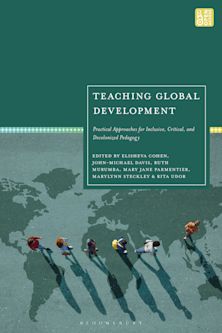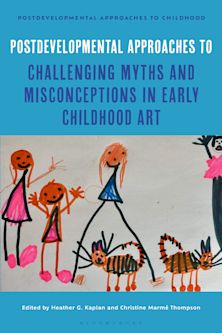Transforming Healthcare Education
Applied Lessons Leading to Deeper Moral Reflection
Transforming Healthcare Education
Applied Lessons Leading to Deeper Moral Reflection
Description
This book sets the scene for the deliberations on ethics and its application to healthcare in the twenty-first century. The word ethics, in classical Greek, means the “beliefs of the people” the study of what is right and good in human conduct and the justification of such claims. Without a doubt this task is not simply about setting up a list of rights and wrongs. Rather, it is a discussion, a process that helps tease out the real issues and find and teach ethical solutions to complex practical problems. The centrality of the patient is of prime consideration in this book, and the health of the individual patient is the first consideration in the teaching considerations discussed.
Applied ethics in healthcare may have lost sight of what traditional ethics was trying to accomplish: a good life for good people over a lifetime in society with others. We must put biomedical ethics into perspective and develop a truly comprehensive approach to health care ethics. On the practical level, we need structures integrating givers ethical perspectives. But, there seems to be a gap and significant perception differences among healthcare providers’ learning environments and actual professional situations. Hence, teaching ethics and healthcare providers values is important to bridge this gap.
Table of Contents
The Foreword – Thomas Zimmerman
The Introduction – Philip C. Scibilia
Chapter 1 Bioethics matters: clinical ethics at the bedside - Jeanne Kerwin, DMH
Chapter 2 A model for training bioethics consultants
(for the in-house seminar or regional workshop) – Jeanne Kerwin
Chapter 3 Drinking stories: a narrative approach to teaching the neuroethics of addiction
Katie Grogan, DMH
Chapter 4 Implementing racial equity training in medical school curriculum –
Kirk Johnson, DMH
Chapter 5 Racial equity, a pedagogical model – Kirk Johnson
Chapter 6 Hearing the voice of the sufferer, the moral compass of the healthcare professional
Gaetana Kopchinsky.DMH
Chapter 7 Epigogy: the education of humanity
The psychology of pain as it affects the human condition – Gaetana Kopchinsky
Chapter 8 Epilogue – Philip C. Scibilia, DMH
Product details
| Published | Mar 16 2020 |
|---|---|
| Format | Ebook (PDF) |
| Edition | 1st |
| Extent | 110 |
| ISBN | 9798216249726 |
| Imprint | Rowman & Littlefield |
| Series | Teaching Ethics across the American Educational Experience |
| Publisher | Bloomsbury Publishing |
Reviews

ONLINE RESOURCES
Bloomsbury Collections
This book is available on Bloomsbury Collections where your library has access.



































